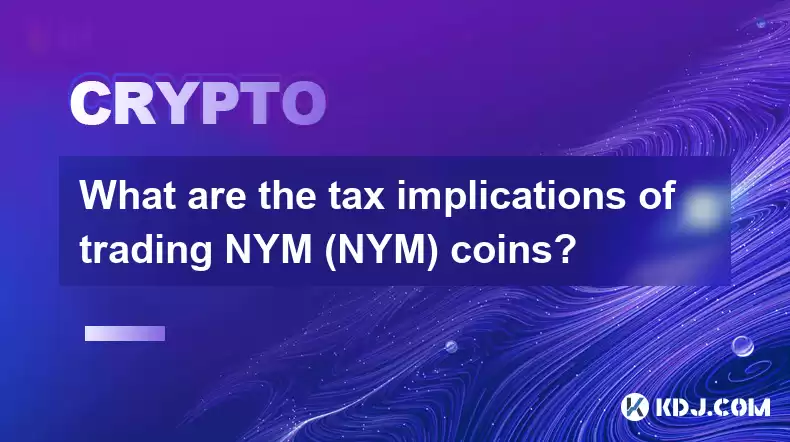-
 Bitcoin
Bitcoin $117600
0.25% -
 Ethereum
Ethereum $4424
0.10% -
 XRP
XRP $3.101
0.50% -
 Tether USDt
Tether USDt $1.001
-0.01% -
 BNB
BNB $836.2
1.26% -
 Solana
Solana $188.8
2.11% -
 USDC
USDC $1.000
0.01% -
 Dogecoin
Dogecoin $0.2301
0.57% -
 TRON
TRON $0.3485
-1.00% -
 Cardano
Cardano $0.9209
-1.34% -
 Hyperliquid
Hyperliquid $46.72
-1.19% -
 Chainlink
Chainlink $22.62
4.84% -
 Stellar
Stellar $0.4275
-0.38% -
 Sui
Sui $3.761
1.91% -
 Bitcoin Cash
Bitcoin Cash $586.7
-0.25% -
 Ethena USDe
Ethena USDe $1.001
0.01% -
 Hedera
Hedera $0.2510
2.06% -
 Avalanche
Avalanche $24.21
2.22% -
 Litecoin
Litecoin $119.7
1.07% -
 Toncoin
Toncoin $3.450
1.06% -
 UNUS SED LEO
UNUS SED LEO $9.411
-0.93% -
 Shiba Inu
Shiba Inu $0.00001298
1.20% -
 Uniswap
Uniswap $10.98
3.25% -
 Polkadot
Polkadot $3.961
2.16% -
 Dai
Dai $1.000
0.00% -
 Bitget Token
Bitget Token $4.642
0.95% -
 Cronos
Cronos $0.1514
0.57% -
 Ethena
Ethena $0.7290
3.78% -
 Monero
Monero $254.1
7.69% -
 Pepe
Pepe $0.00001102
2.47%
What are the tax implications of trading NYM (NYM) coins?
The tax nature of NYM Coins depends on their underlying technology, intended use, and market recognition, likely being classified as a commodity or property.
Dec 22, 2024 at 10:00 am

Key Points:
- Understanding the Tax Nature of NYM Coins
- Taxation of NYM Trading Activities
- Reporting Requirements and Penalties
- Tax Calculation for NYM Gains and Losses
- Strategies for Optimizing Tax Liabilities on NYM Transactions
- FAQs on NYM Coin Taxation
Understanding the Tax Nature of NYM Coins
NYM Coins (NYM) are a form of cryptocurrency designed to provide privacy-centric transactions. From a tax perspective, the classification of NYM is crucial for determining the appropriate tax treatment. Typically, cryptocurrencies are treated as either commodities or property for tax purposes.
The tax nature of NYM depends on factors such as its underlying technology, intended use, and market recognition. If NYM is primarily used as a medium of exchange or store of value, it is likely to be classified as a commodity. Alternatively, if it is primarily used for investment purposes or represents a share in a decentralized network, it may be classified as property.
Taxation of NYM Trading Activities
The taxation of NYM trading activities varies depending on the applicable jurisdiction. Generally, the sale or exchange of NYM for fiat currency or other cryptocurrencies triggers a taxable event. The taxable gain or loss is determined by calculating the difference between the acquisition cost of the NYM and the sale proceeds, taking into account any transaction fees or expenses incurred.
Short-term capital gains or losses on NYM transactions are typically taxed at ordinary income tax rates. These gains are realized when NYM is held for less than a specified period (e.g., one year in the United States) before being sold or exchanged. Long-term capital gains or losses, on the other hand, are taxed at preferential rates if NYM is held for a longer period.
Reporting Requirements and Penalties
Taxpayers are required to report their NYM trading activities and any resulting gains or losses on their tax returns. Failure to properly report NYM transactions can lead to penalties and interest charges.
Tax Calculation for NYM Gains and Losses
To calculate the tax liability on NYM gains and losses, taxpayers need to determine the following:
- Acquisition Cost: The price at which NYM was originally acquired, including transaction fees.
- Sale Proceeds: The amount of fiat currency or other cryptocurrencies received in exchange for NYM.
- Gain or Loss: The difference between the acquisition cost and the sale proceeds.
Strategies for Optimizing Tax Liabilities on NYM Transactions
Taxpayers can employ various strategies to minimize their tax liabilities on NYM transactions. These may include:
- Tax-Loss Harvesting: Selling NYM at a loss to offset capital gains from other investments.
- Holding Periods: Holding NYM for a longer period to qualify for preferential long-term capital gains tax rates.
- Taxation in Favorable Jurisdictions: Exploring tax-friendly jurisdictions with lower capital gains tax rates for cryptocurrency transactions.
FAQs on NYM Coin Taxation
Q: How is NYM taxed in the United States?
A: NYM is generally treated as a property for tax purposes. Short-term gains on NYM sales are taxed at ordinary income tax rates, while long-term gains are taxed at preferential rates.
Q: Do I have to pay taxes if I trade NYM for another cryptocurrency?
A: Yes, exchanging NYM for another cryptocurrency is a taxable event that triggers a capital gain or loss.
Q: What happens if I don't report my NYM trading activities on my tax return?
A: Failure to report NYM transactions can result in penalties and interest charges from tax authorities.
Disclaimer:info@kdj.com
The information provided is not trading advice. kdj.com does not assume any responsibility for any investments made based on the information provided in this article. Cryptocurrencies are highly volatile and it is highly recommended that you invest with caution after thorough research!
If you believe that the content used on this website infringes your copyright, please contact us immediately (info@kdj.com) and we will delete it promptly.
- Kazakhstan's Crypto Leap: Bitcoin ETF and Central Asia's Digital Finance Future
- 2025-08-13 12:45:19
- BlockDAG Presale Blazes Past $371M: Fundraising Frenzy Fuels Crypto Sensation
- 2025-08-13 13:05:21
- Meme Coins: Chasing the 2025 Surge – Which Will Moonshot?
- 2025-08-13 10:25:23
- Bitcoin's Wild Ride: Rally, Pullback, and What's Next
- 2025-08-13 10:25:23
- Bitcoin, Bitmax, and Institutional Demand: A New Era of Crypto Investment
- 2025-08-13 10:45:12
- Solana, ROAM, and Airdrops: What's the Buzz in 2025?
- 2025-08-13 11:35:13
Related knowledge

How to purchase Aragon (ANT)?
Aug 09,2025 at 11:56pm
Understanding Aragon (ANT) and Its PurposeAragon (ANT) is a decentralized governance token that powers the Aragon Network, a platform built on the Eth...

Where to trade Band Protocol (BAND)?
Aug 10,2025 at 11:36pm
Understanding the Role of Private Keys in Cryptocurrency WalletsIn the world of cryptocurrency, a private key is one of the most critical components o...

What is the most secure way to buy Ocean Protocol (OCEAN)?
Aug 10,2025 at 01:01pm
Understanding Ocean Protocol (OCEAN) and Its EcosystemOcean Protocol (OCEAN) is a decentralized data exchange platform built on blockchain technology,...

How to invest in Kyber Network Crystal v2 (KNC)?
Aug 12,2025 at 05:21pm
Understanding Kyber Network Crystal v2 (KNC)Kyber Network is a decentralized liquidity hub built on the Ethereum blockchain that enables instant token...

Where can I buy UMA (UMA)?
Aug 07,2025 at 06:42pm
Understanding UMA and Its Role in Decentralized FinanceUMA (Universal Market Access) is an Ethereum-based decentralized finance (DeFi) protocol design...

How to sell my Ren (REN) tokens?
Aug 13,2025 at 11:35am
Understanding REN Tokens and Their Role in Decentralized FinanceREN is an ERC-20 token that powers the Ren protocol, a decentralized interoperability ...

How to purchase Aragon (ANT)?
Aug 09,2025 at 11:56pm
Understanding Aragon (ANT) and Its PurposeAragon (ANT) is a decentralized governance token that powers the Aragon Network, a platform built on the Eth...

Where to trade Band Protocol (BAND)?
Aug 10,2025 at 11:36pm
Understanding the Role of Private Keys in Cryptocurrency WalletsIn the world of cryptocurrency, a private key is one of the most critical components o...

What is the most secure way to buy Ocean Protocol (OCEAN)?
Aug 10,2025 at 01:01pm
Understanding Ocean Protocol (OCEAN) and Its EcosystemOcean Protocol (OCEAN) is a decentralized data exchange platform built on blockchain technology,...

How to invest in Kyber Network Crystal v2 (KNC)?
Aug 12,2025 at 05:21pm
Understanding Kyber Network Crystal v2 (KNC)Kyber Network is a decentralized liquidity hub built on the Ethereum blockchain that enables instant token...

Where can I buy UMA (UMA)?
Aug 07,2025 at 06:42pm
Understanding UMA and Its Role in Decentralized FinanceUMA (Universal Market Access) is an Ethereum-based decentralized finance (DeFi) protocol design...

How to sell my Ren (REN) tokens?
Aug 13,2025 at 11:35am
Understanding REN Tokens and Their Role in Decentralized FinanceREN is an ERC-20 token that powers the Ren protocol, a decentralized interoperability ...
See all articles

























































































